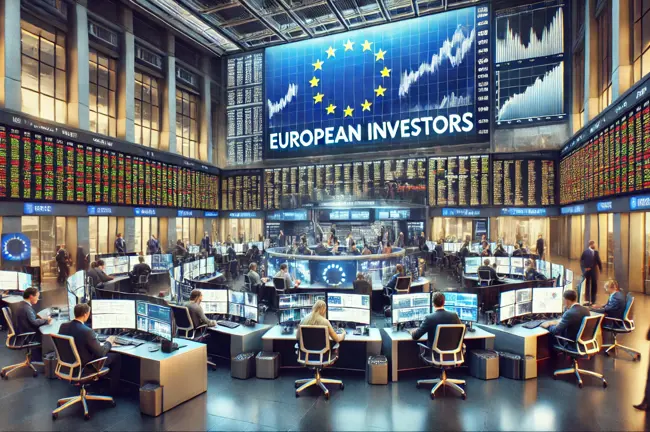
European Investors
Who we are
European Investors-VEB is the oldest and largest pan-European advocate for investors and financial consumers. Founded in the Netherlands in 1924, it has been a crucial support for cross-border investors within Europe since then.
EI-VEB still operates from the Netherlands, home to most of its 30,000 members. Additionally, the organization has institutional members from all over Europe. EI-VEB are a non-profit, member-based organization dedicated to enhancing the representation of professional investors in Europe.
What we do
Engage
We represent investors in regulatory discussions and constructively engage with listed compa-nies. Our objective is to enhance trust in European capital markets by promoting transparency, engagement and accountability.
Litigate
European Investors has an unrivalled track record in litigation and initiates class actions to re-claim losses incurred by investors as a result of unlawful behaviour.
Inform
European Investors' team of analysts provides our members with in-depth market analysis. These analyses form the foundation for our engagement discussions with publicly traded companies, our dialogue on behalf of investors at shareholders' meetings, and with providers of investment prod-ucts. Additionally, we possess the necessary forensic expertise that plays a crucial role in various stages of litigation processes.
Trackrecord
European Investors pursues class actions on behalf of investors who have incurred losses on their investments due to deception, fraud, default or other forms of misconduct on the part of banks, listed companies, auditors, managers and supervisory directors, or others.
The aim is to obtain justice and compensation for the damage done.
European Investors can rely on the expertise and experience of one of its founding members, the Dutch Investors’ Assocation VEB which, since its establishment in 1924, has won more than €3.5 billion in compensation for its constituents.
European Investors does not accept third party funding or litigation funding.
| Selection of compensation from settlements | Pending |
|---|---|
| Fortis - €1.3Bn | Philips |
| Ahold - $1.1Bn | SNS Reaal |
| Shell - $395M | |
| Unilever - €325M | |
| Steinhoff - €266M | |
| World Online - €118M | |
| Converium - $59M | |
| Steinhoff-Deloitte - €57M | |
| Imtech - €25M | |
| KPNQwest - €19M | |
| Numico/Danone - €17M | |
| Ahold-Deloitte- €16M | |
| Via Foundations | |
| Dexia - €1.0Bn | |
| Various insurers (Re. hidden investment costs) - € 3.0Bn |
Join us/contact
Participation in any legal action is open to institutional investors against a success fee of 9% with no upfront costs. VEB/European Investors is a not-for-profit organization.
We do not seek any litigation funding as we have an in-house legal department staffed with experienced solicitors specialized in class actions under Dutch law.
Contact
For more information or to register for our class actions, please contact our Head of Institutional Investors, Mr. Armand Kersten at info@europeaninvestors.eu.

